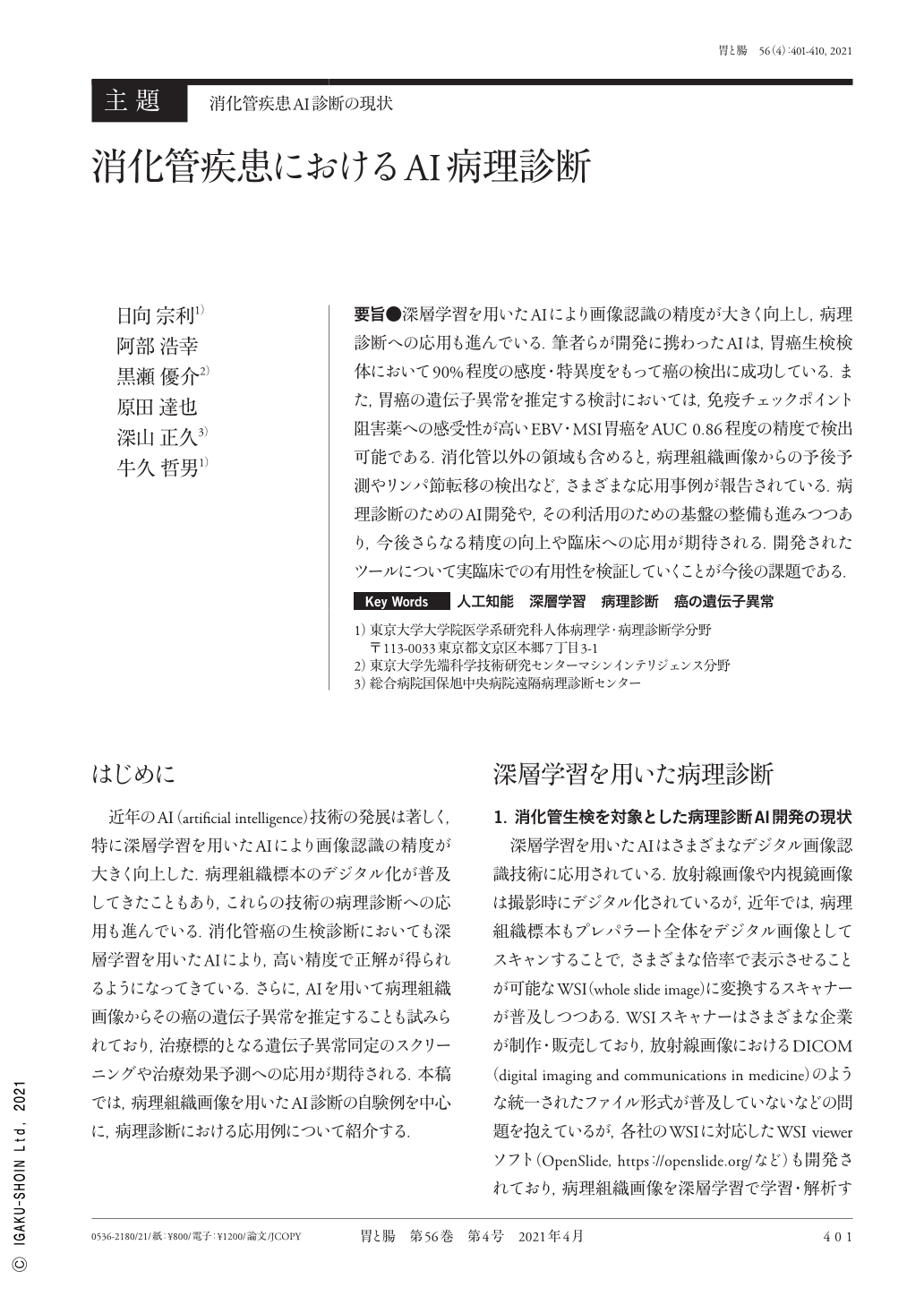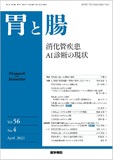Japanese
English
- 有料閲覧
- Abstract 文献概要
- 1ページ目 Look Inside
- 参考文献 Reference
要旨●深層学習を用いたAIにより画像認識の精度が大きく向上し,病理診断への応用も進んでいる.筆者らが開発に携わったAIは,胃癌生検検体において90%程度の感度・特異度をもって癌の検出に成功している.また,胃癌の遺伝子異常を推定する検討においては,免疫チェックポイント阻害薬への感受性が高いEBV・MSI胃癌をAUC 0.86程度の精度で検出可能である.消化管以外の領域も含めると,病理組織画像からの予後予測やリンパ節転移の検出など,さまざまな応用事例が報告されている.病理診断のためのAI開発や,その利活用のための基盤の整備も進みつつあり,今後さらなる精度の向上や臨床への応用が期待される.開発されたツールについて実臨床での有用性を検証していくことが今後の課題である.
AI(Artificial intelligence), using deep learning, has significantly improved accuracy in image recognition, and its application to support pathology practice is progressing. We have developed AI that successfully recognizes cancer cells in gastric biopsy images with sensitivity and specificity of approximately 90%. We have also developed AI that can predict EBV(Epstein-Barr virus)-positive and MSI(microsatellite-unstable/instability)gastric cancer subtypes. These subtypes are sensitive to immune-checkpoint inhibitors, with a high AUC(area under the curve)of 0.86. In addition, various AI tools have been reported. These include a prognosis predictor based on histopathological images, a detector of lymph node metastasis, and others. Infrastructure for development and utilization of AI in the field of pathology is advancing. As the accuracy of AI diagnosis improves, progress toward clinical application will continue. The next steps include validating the usefulness of developed tools in clinical practice.

Copyright © 2021, Igaku-Shoin Ltd. All rights reserved.


